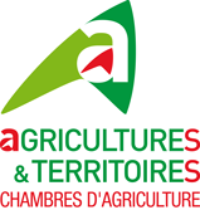Document type : Press release from CIWF France
Author: CIWF France
Preview: CIWF today released the fifth edition of EggTrack which tracks the progress of egg-free commitments by companies around the world. The 2021 edition shows that, despite the context (global COVID-19 pandemic), companies continue to make progress on their commitments. This progress, combined with the success announced on June 30 of the European Citizens' Initiative (ECI) "Ban the Cage Age," demonstrates not only that change is possible, but that the transition is underway.
EggTrack, the tool to monitor major food companies's commitments to cage-free egg production
EggTrack is a monitoring tool created by CIWF to report on the progress made each year by food companies that have committed to source their eggs and egg products from cage-free providers by 2025 at the latest. It tracks their progress, encourages transparency, ensures that they are meeting their commitments and, ultimately, helps them in their transition to 100% cage-free sourcing.
Each year the data is updated and the number of companies assessed in the scheme increases. Together, these commitments can improve the farming conditions for billions of laying hens.
The transition to 100% cage-free, a global movement!
Despite the supply-chain disruptions caused by the COVID-19 pandemic and avian influenza in Europe, food companies and producers continue to make progress in the transition to purchasing 100% cage-free eggs.
- A total of 219 companies are tracked by EggTrack this year of which 92 operate globally, 52 only in North America or the US, and 75 only in Europe.
- Of these, 156 have reported on their progress in fulfilling their commitments
- 22 companies have submitted reports for the first time this year, bringing the proportion of companies reporting on progress to 71%, compared to 63% in 2020
- Overall (of the 156 reporting companies), the average proportion of cage-free sourcing is now 79.35%
EggTrack thus provides a global view and the results are encouraging. The cage-free transition is underway in France, Europe and the US, and is also progressing in key markets such as South America and Asia. Multinationals such as Subway, Burger King, Sodexo,
Compass Group, Accor Hotels, and Metro AG have made cage-free commitments that cover their operations in Asia. In South America, the region's largest egg producer, Mantiqueira, took the decision at the end of 2020 not to build any new buildings incorporating cages.
Additionally, two French multinationals stand out this year: Danone has reached its global 100% cage-free target this year and Carrefour has extended its European commitment to a global one for own-brand shell eggs.
A step forward in Europe...
European companies, not least French ones, are particularly transparent:
- Of the 116 European companies assessed, 98 reported progress, i.e. 84%
- In France, 44 companies out of 55 in the system reported their progress, i.e. 80% (compared to 68% in 2020)
- Among them, 8 have published a report for the first time: Aldi France, API Restauration, Bertrand Restauration and Groupe Flo, CDPO, Eureden, Flunch and Pomona.
- Some, though, have remained silent: Buffalo Grill and Bonne Maman have still not reported on their progress.
All French retailers have now committed to source only cage-free shell eggs (all brands) and egg ingredients (own brands) by 2025. While the transition is well underway for shell eggs, progress is slower for egg ingredients (with the exception of Lidl France, which has already reached its 100% cage-free target for this category). [...]
Going a step further in the cage-free transition?
Several French companies have adopted policies that go further than cage-free transition and include other criteria in the minimum standards required of their suppliers: access to outdoors (examples for shell eggs: Monoprix, Système U and for egg ingredients: Groupe Holder, Bertrand Restauration) or conversion to systems with winter gardens (e.g. Carrefour)
These commitments are in line with the approaches adopted by certain producers such as Cocotine (Eureden), which has chosen to guarantee access to a winter garden for all of its ground-level egg products.
Some cage-free systems, such as combination systems (a type of open cage marketed as code 2), are not an acceptable alternative. We encourage companies to exercise vigilance to ensure that they direct their investments towards properly-designed cage-free systems that significantly improve the lives of laying hens.






